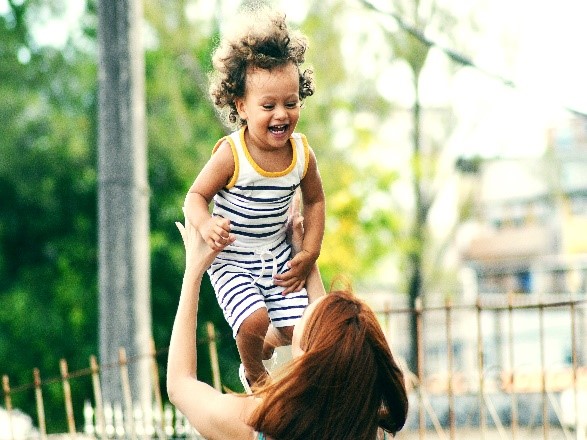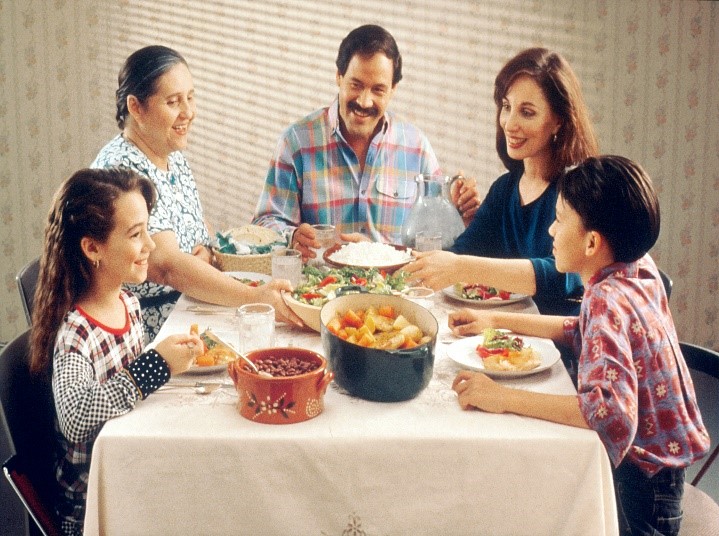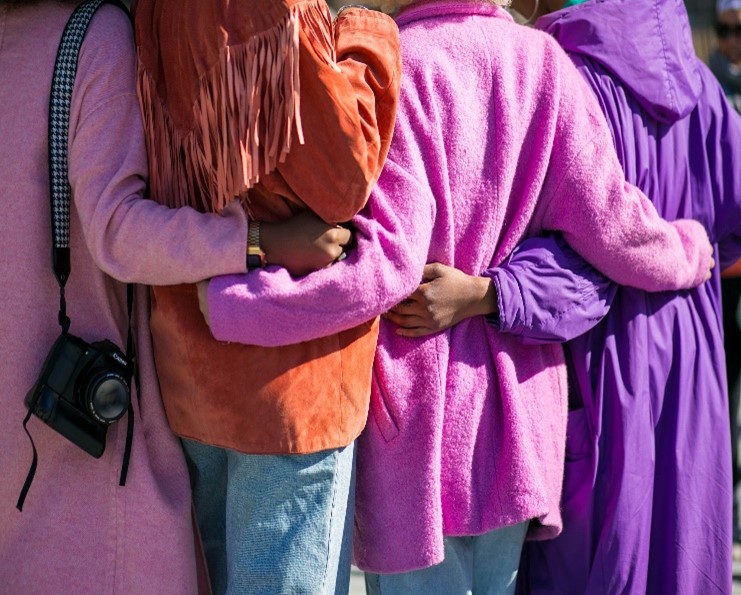- Select a Section for More Information
- For Families
- Support Networks
- For Providers
- Virginia Mental Health Access Program (VMAP)
- Evidence Based Practices
- Trauma Informed Care
The National Alliance on Mental Illness defines evidence-based practice (EBP) as a treatment or service which has been.
- 1. studied, usually in an academic or community setting, and
- 2. has been shown to be effective, in repeated studies of the same practice and conducted by several investigative teams.
The EBPs below are some of the practices that are available for children and adolescents in Virginia; please note that this is not a comprehensive list.

TF-CBT is an evidence-based treatment for children and adolescents impacted by trauma and their parents or caregivers. It is a components-based treatment model that incorporates trauma-sensitive interventions with cognitive behavioral, family, and humanistic principles and techniques. TF-CBT has proved successful with children and adolescents (ages 3 to 18) who have significant emotional problems (e.g., symptoms of posttraumatic stress disorder, fear, anxiety, or depression) related to traumatic life events. It can be used with children and adolescents who have experienced a single trauma or multiple traumas in their lives. (“Trauma-Focused Cognitive Behavioral Therapy”, www.nctsn.org, Published in 2012, https://www.nctsn.org/interventions/trauma-focused-cognitive-behavioral-therapy).
Find a Trauma Focused-Cognitive Behavioral Therapist near you here.

PCIT is an evidence-based treatment for young children, ages 2-7 with behavioral problems.
PCIT is conducted through “coaching” sessions during which the parent and child are in a playroom while the therapist is in an observation room watching the parent interact with their child through a one-way mirror and/or live video feed. The parent wears a “bug-in-the-ear” device through which the therapist provides in-the-moment coaching on skills you are learning to manage their child’s behavior. (“What is Parent-Child Interaction Therapy (PCIT)?”, www.pcit.org, January 2023, http://www.pcit.org/what-is-pcit.html)
Find a Parent Child Interaction Therapist near you here.

FFT is a short-term, high quality evidence based intervention program with an average of 12 to 14 sessions over three to five months. FFT works primarily with 11- to 18-year-old youth who have been referred for behavioral or emotional problems by the juvenile justice, mental health, school, or child welfare systems. Services are conducted in both clinic and home settings, and can also be provided schools, child welfare facilities, probation and parole offices/aftercare systems and mental health facilities.
FFT is a strength-based model built on a foundation of acceptance and respect. At its core is a focus on assessment and intervention to address risk and protective factors within and outside of the family that impact the adolescent and his or her adaptive development. (“Functional Family Therapy (FFT)”, www.fftllc.com, January 2023, https://www.fftllc.com/about-fft-training/clinical-model.html)
Find a Family Functional Therapist near you here.

Multisystemic Therapy (MST) is an intensive family and community-based treatment for serious juvenile offenders ages 12-17 with possible substance abuse issues and their families. The primary goals of MST are to decrease youth criminal behavior and out-of-home placements. Critical features of MST include: (a) integration of empirically based treatment approaches to address a comprehensive range of risk factors across family, peer, school, and community contexts; (b) promotion of behavior change in the youth’s natural environment, with the overriding goal of empowering caregivers; and (c) rigorous quality assurance mechanisms that focus on achieving outcomes through maintaining treatment fidelity and developing strategies to overcome barriers to behavior change. (“Multisystemic Therapy (MST)”, www.cebc4cw.org, January 2023, https://www.cebc4cw.org/program/multisystemic-therapy/h)
Find a Multisystemic Therapist near you here.

Intensive Care Coordination ensures necessary services are provided to youths and their families that maintain or transition youths to family-based or community-based setting. These services involve activities that extend beyond regular case management services that are within the normal scope of responsibilities of the public child-serving system, and that are beyond the scope of services defines by the Department of Medical Assistance Services as “Mental Health Case Management.”
If you would like more information about Intensive Care Coordination services, please click here: http://www.vasystemofcare.org/high-fidelity-wraparound/

The Virginia Wraparound Implementation Center (VWIC) is a model for Virginia’s movement toward evidence-based practice workforce development, coaching, fidelity and outcome reporting. On October 1, 2020, VWIC will become the statewide entity responsible for High Fidelity Wraparound (HFW) workforce training, as well as the development and implementation of measures to ensure quality and fidelity to the HFW model. This memo provides background on VWIC as well as an opportunity for providers of High Fidelity Wraparound to participate as a VWIC member.
http://www.vasystemofcare.org/wp-content/uploads/2020/06/VWIC_Memo.pdf

A-CRA seeks to increase the family, social, and educational/vocational reinforces to support recovery. This intervention has been implemented in outpatient, intensive outpatient, and residential treatment settings. A-CRA includes guidelines for three types of sessions: individuals alone, parents/caregivers alone, and individuals and parents/caregivers together. According to the individual’s needs and self-assessment of happiness in multiple life areas, clinicians choose from a variety of A-CRA procedures that address, for example, problem-solving skills to cope with day-to-day stressors, communication skills, and active participation in positive social and recreational activities with the goal of improving life satisfaction and eliminating alcohol and substance use problems. (Source: https://www.chestnut.org/ebtx/treatments-and-research/treatments/a-cra/)

CRAFT is a highly-effective, evidence-based, motivational program of support for family members living with a loved one (i.e. partner or adult son/daughter) who is using alcohol or drugs problematically but who refuses to enter treatment. CRAFT teaches these family members (concerned significant others – CSOs) how to change their own behavior at home toward the substance using family member in a carefully orchestrated manner. More specifically, CSOs learn to rearrange contingencies in the substance misuser’s environment so that appropriate behavior is effectively rewarded, drinking or drug use is discouraged, and engagement in treatment is encouraged. (“The Community Reinforcement Approach and Family Training (CRAFT)”, robertjmeyersphd.com, January 2023, https://www.robertjmeyersphd.com/craft.html)